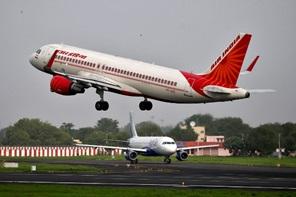The Ministry of Civil Aviation has notified the draft Aircraft Security Rules, 2022 which enable the aviation security regulator, Bureau of Civil Aviation Security (BCAS) to impose penalties up to ₹1 crore on airports and airlines for violation of security measures.
Once the draft Rules are finalised, the BCAS can impose a fine of ₹50 lakh to ₹1 crore (depending on the size of the company) on airports and airlines if they fail to prepare and implement a security programme, or if they commence operations without seeking a security clearance.
Large airports can also face a penalty of ₹1 crore if they fail to plan the design and layout of the airport in accordance with the National Civil Aviation Security Programme. Individuals will also face penalties ranging from ₹1 lakh to ₹25 lakh depending on the nature of offence. According to the proposed rules, the BCAS will also be able to suspend or cancel an entity’s airport security clearance and security programme.
In order to deal with cyber security threats, the rules also require each entity to protect its information and communication technology systems against unauthorised use and prohibit disclosure of sensitive aviation security information. The draft rules now authorise airports to engage private security agents instead of CISF personnel at “non-core areas” and assign security duties as per the recommendation of the National Civil Aviation Policy, 2016.
“Once the Aircraft Security Rules 2022 are finalised, they will go a long way in ensuring an effective aviation security apparatus in the country. These are also as per ICAO norms,” said Zulfiquar Hasan, DG at BCAS.
The rules will supersede Aircraft Security Rules, 2011 and were necessary after Parliament passed Aircraft Amendment Act, 2020 in September 2020, giving statutory powers to BCAS, along with the Director General of Civil Aviation and Aircraft Accident Investigation Bureau. These allow them to impose penalties which could only be imposed by courts earlier. The Act also raised the maximum penalty from ₹10 lakh to ₹1 crore.
The amendment in Parliament was required after the United Nations aviation watchdog, International Civil Aviation Organisation (ICAO), raised questions about the three regulators functioning without statutory powers








